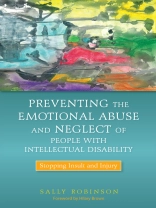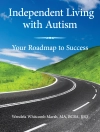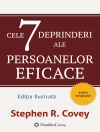There’s so many different types of abuse, and it all comes down to the same thing. It’s making people nothing. And Fran was nothing. There was never anything nice said about her, everything was negative. And she had to put up with that, and we had to put up with that, until we all sort of believed it, almost.’
Preventing the Emotional Abuse and Neglect of People with Intellectual Disability throws light onto the traumatic experiences faced by people with intellectual disability living in disability accommodation services. Through the narratives of nine people with intellectual disability and their family members, it reveals: the problem of systematic abuse; the cumulative impact of emotional and psychological abuse and neglect over time; recognition of the abuse by people with intellectual disability; and the lack of moral authority afforded to them in abuse acknowledgement and reporting. The author suggests a number of positive approaches and methods to help all those working with people with intellectual disability to prevent emotional abuse, respond appropriately and effectively support the recovery of victims.
This book will prove to be indispensable for social care workers, care home managers, social workers, researchers and academics in the disability field, social sciences students, human rights workers and abuse practitioners.
Tabela de Conteúdo
Acknowledgements. Foreword. Preface. Part One. Setting the Scene. 1. Gaining new understanding about abuse through the lens of lived experience. 2. What is this harm? 3. What does this mean for practice? Part Two. Stories of Lived Experience. 4. Insult and injury. 5. Systemic concerns. Part Three. Making Change and Moving Forward. 6. What do these experiences mean for other people with intellectual disability? 7. What do these experiences mean for practice and policy? 8. New insights into the problem. 9. Implications for making change. 10. Concluding remarks.
Sobre o autor
Sally Robinson is a Research Fellow at the Centre for Children and Young People, Southern Cross University, Australia. She has been actively researching and working with people with disability for over 20 years. She lives in Lismore, NSW, Australia.












